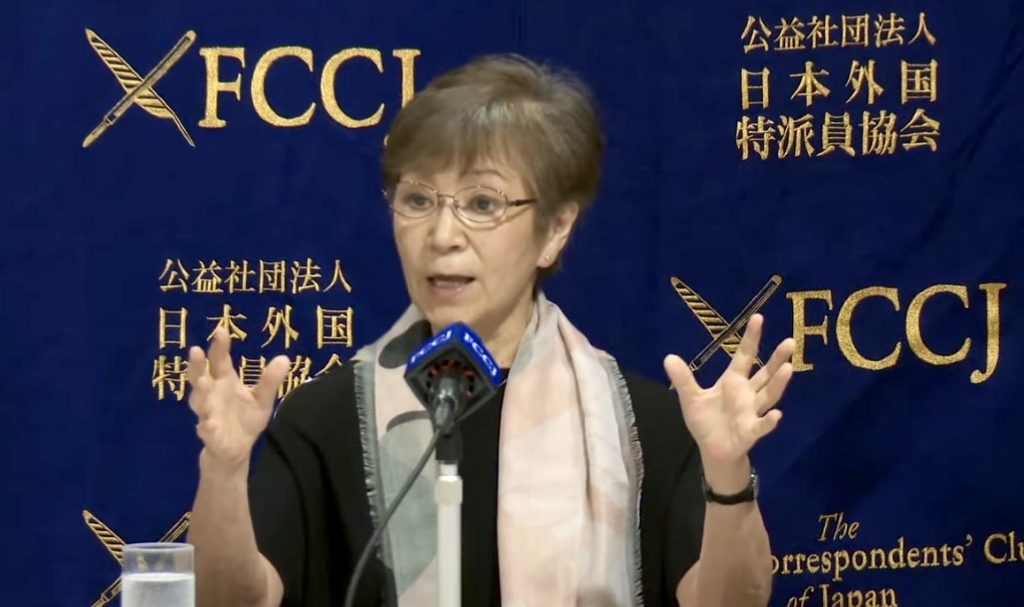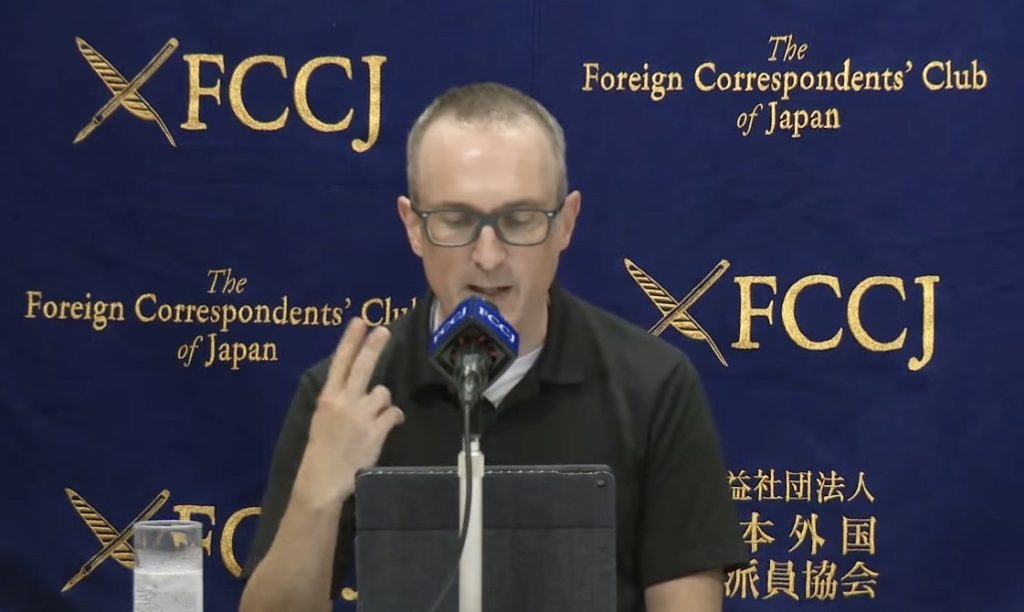



Arab News Japan
TOKYO: The effects of using Agent Orange in the Vietnam war continues to this day and the US government continues to hide the fact, according to filmmaker SAKATA Masako and author Jon Mitchell.
Sakata is the widow of renowned photographer Greg Davies who died of liver cancer at the age of 55, a result of his exposure to Agent Orange, Sakata believes.
Since his death in 2003, she has researched and documented on filming the legacy of Agent Orange. In 2004, she produced “Agent Orange – A Personal Requiem” and her latest documentary on the subject is “Long Time Passing.
“Vietnam says 3 million people suffered from the effects of Agent Orange,” she told a press conference at the Foreign Correspondents’ Club of Japan on Friday. “Between 1961 and 1971, the US military sprayed 72 million liters of Agent Orange over Vietnam and much of the land in South Vietnam was contaminated.”
According to Mitchell, Agent Orange was developed from research that originated in Japan’s Unit 731, a bio-research center in China. The Americans took over the research after the end of World War II.
Sakata says she started documenting the effects of Agent Orange “to cope with the loss and sadness” of her husband’s passing. She traveled to Vietnam and discovered what the chemical had done to the people there.
“I got to see the effects of the defoliants on people in Vietnam,” she says. “Victims suffered in different ways and I wanted to tell the story of people victimized by the powerful chemical that may be buried in history. Agent Orange is not a problem of the past but is an issue affecting our life today.”
Okinawa-based writer Mitchell has spent a decade trying to uncover the hidden truth of Agent Orange in Japan. The US denied that the chemical had ever been present in Japan but had to change their story when barrels of the stuff was unearthed in the southern prefecture.
“Three-quarters of America’s war supplies passed through Okinawa during the Vietnam War,” he says. These “supplies” included nuclear weapons, chemical weapons and Agent Orange, which was sprayed around the island.
Mitchell accuses both the US and Japan of covering up the issue, in part to sustain the 31 military bases that still exist on Okinawa.
“I’m surprised at the coverage gap between Okinawa’s media and mainland Japan’s media,” says Mitchell. “The mainland media are much more reluctant to report on Okinawa issues. When Okinawa’s drinking water was contaminated, it was front-page news in Okinawa but people on the mainland haven’t heard about it.”
Mitchell says that those who do report on such issues are often attacked by far-right groups.
Mitchell says that if a confrontation with China develops into a war, he is worried Okinawa “will once again be sacrificed” as it was in World War II.
“It’s important to bring the voices of forgotten people into the sun,” Sakata says. “I hope my film serves that purpose.”